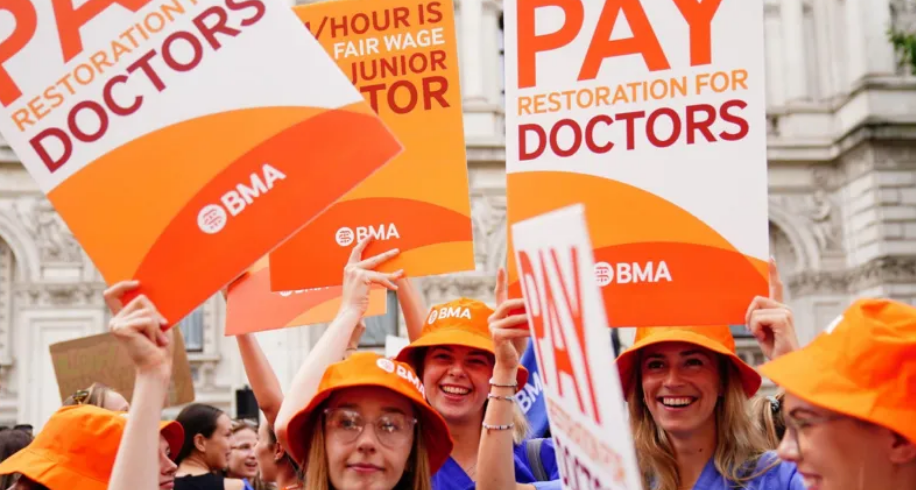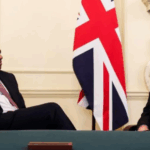Doctors in England are threatening to resume strike action following the government’s decision to award a 4% pay increase, which union leaders have slammed as inadequate and out of step with inflation.
The British Medical Association (BMA), which represents doctors, called the offer “derisory” and warned it fails to address years of real-terms pay cuts. The proposed rise, effective from April 1, has reignited tensions just months after industrial unrest was brought to a halt by negotiated settlements in 2024.
Professor Philip Banfield, chair of the BMA council, said the increase “pushes pay restoration even further into the distance” and accused the government of failing to present a credible plan to repair more than a decade of wage erosion. He warned that while “no one wants a return to scenes of doctors on picket lines,” the risk of renewed strikes is growing.
The union is preparing to ballot resident doctors—formerly known as junior doctors—next week, a move that predates Thursday’s pay announcement but has gained renewed urgency. The Department of Health says these doctors will also receive an additional £750 one-off payment, taking their average uplift to 5.4%.
Resident doctors were at the forefront of industrial action in 2023 and 2024, walking out 11 times in pursuit of a 35% pay rise. While they have secured a cumulative 22% increase over the past two years, the BMA argues that this year’s award falls short of bridging the remaining pay gap.
Other NHS workers, including nurses and midwives, have also reacted angrily to a separate 3.6% rise. The Royal College of Nursing called the award “grotesque” and warned it could lead to strike ballots among its members.
The political backlash extended into education. The National Education Union (NEU) has said it is likely to “register a dispute” if the government does not fully fund the 4% pay rise offered to teachers. Though £615 million in extra funding has been announced, schools are expected to cover part of the increase through “smarter spending,” prompting warnings of service cuts and job losses.
Health Secretary Wes Streeting defended the awards as “significant progress,” noting they exceed current inflation levels. But critics, including the Conservative opposition, argue the government has lost control of public sector pay, opening the door to further unrest.
As pay review bodies recommend settlements above the Treasury’s budgeted 2.8%, the pressure is now on Labour ministers to maintain stability while balancing rising wage bills against strained departmental budgets.

















